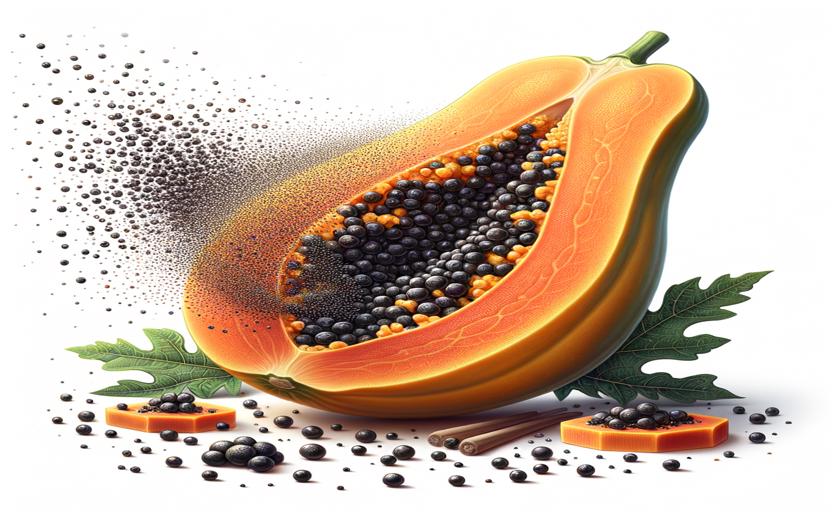
Potential Anti-Inflammatory Benefits of Nanoparticles from Papaya Fruit
Jenn Hoskins
4th July, 2024

Image Source: Natural Science News, 2024
Key Findings
- Researchers at Institut Teknologi Bandung, Indonesia, found that papaya-derived nanoparticles (PDENs) have strong anti-inflammatory properties
- Papaya PDENs were stable for up to four weeks in specific storage conditions, making them practical for therapeutic use
- In lab tests, these nanoparticles reduced inflammation markers and were safe for cells, showing potential for treating inflammation
References
Main Study
1) Isolation and characterization of plant-derived exosome-like nanoparticles from Carica papaya L. fruit and their potential as anti-inflammatory agent.
Published 3rd July, 2024
https://doi.org/10.1371/journal.pone.0304335
Related Studies
2) Plant-derived exosome-like nanoparticles: A concise review on its extraction methods, content, bioactivities, and potential as functional food ingredient.
3) Onion (Allium cepa L.)-Derived Nanoparticles Inhibited LPS-Induced Nitrate Production, However, Their Intracellular Incorporation by Endocytosis Was Not Involved in This Effect on RAW264 Cells.



 22nd May, 2024 | Jenn Hoskins
22nd May, 2024 | Jenn Hoskins